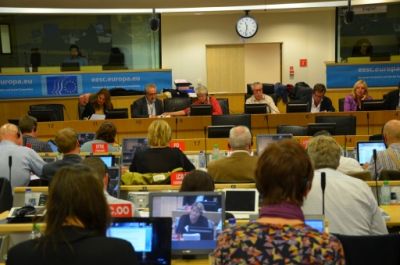
Adopted by the ETUC Executive Committee at its meeting on 10-11 March 2015
When the ETUC Executive Committee convened for their meeting on March 10, pilots in the budget carrier Norwegian had been on strike for 11 days.
The main demand of the Norwegian Pilot Union (NPU) was to have a collective agreement with their real employer, Norwegian Air Shuttle.
In Denmark, Ryanair is establishing a base in Copenhagen, and are refusing the Danish unions’ request for a collective agreement.
After several days of negotiating, the conflict in Norway ended in a result both parties were satisfied with on the afternoon of March 10.
The European Transport Workers’ Federation (ETF) and its members Parat (in Norway) and FPU (in Denmark) are strongly combating anti-social practices of low fares airlines (LFAs). Together, they request the recognition of trade unions and their ability to negotiate collective agreements (including at transnational level).
The central point in both these airline situations is the fundamental right of workers to negotiate and agree on working conditions and wages with their employer.
Regrettably, some airline companies increasingly disregard established rules, and refuse to negotiate and cooperate with their workers.
The ETUC Executive Committee expresses its deep concern with the development in the European air transport sector, and the race to the bottom regarding working conditions and wages, that we are now seeing.
The conduct of the managements of Ryanair and some other low fares airlines is an attack on all workers in Europe, and is a template for how to destroy the European collective agreement model.
The negative developments in some segments of the airline sector may soon also be a reality in many other sectors, both private and public.
If Ryanair and other low fares airlines succeed in their attempts to undermine working conditions and collective agreements in Europe, it will change the outlook for all employees in Europe, not just in the airline industry.
These examples clearly show the need for imminent better and adapted regulation of the European airline sector. Europe needs common European rules to secure good working conditions for all employees in the sector. The race to the bottom must stop!
The ETUC Executive Committee therefore demands that European authorities immediately revise the current regulations of the sector, in close cooperation with the representative social partners.
